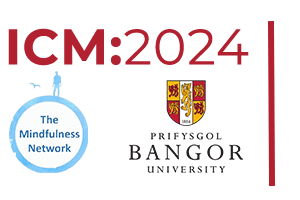Our aim is to make the 2024 International Mindfulness Conference as widely and easily accessible as possible, including welcoming neurodivergent meditators. Exploring neurodiversity brings new perspectives for practicing, teaching and researching mindfulness. In this blog, a neurodivergent member of our EDI advisory group answers questions on neurodiversity and explains our endeavours to create a neurodivergent-inclusive conference.
How can all ICM:2024 conference attendees contribute to creating a neurodivergent-affirming environment?
Attendees can inform themselves about neurodivergent-affirmative approaches (e.g. Hartman et al., 2024; Naylor, 2023) and show respect for different ways of participating e.g.
- Sensory experiences. Busy, crowded, bright spaces can be overwhelming and impact a person’s ability to engage. Some participants may need to wear sunglasses and/or ear defenders to manage their sensory input and take quiet breaks to self-regulate.
- Processing times. People take different amounts of time to process information and respond. Longer processing times may just mean they are working with more information; it does not mean they aren’t paying attention or capable of engaging.
- Movement and stillness. Some people may need movement during meditation practices. This might be an aid to focus or concentration rather than an indication that they are distracted and not focusing.
- Social batteries. Meeting new people can be particularly draining for some people. Selective attendance and staying off-screen during virtual events are important energy management tools, not signs of lack of commitment.

Language and diagnostic labels are historically contingent, and talking about these topics can be challenging. We all get language wrong at times and have limited understanding of other people’s worlds. Attendees are invited to be part of creating and holding spaces for exploration and learning for all.
Approaches set out in multicultural agreements are relevant to supporting neurodivergent-affirming spaces and acknowledge intersectionality e.g. the East Bay Meditation Center agreement includes:
- Try It On. Be willing to “try on” new ideas, or ways of doing things that might not be what you prefer or are familiar with.
- Practice Self Focus. Attend to and speak about your own experiences and responses. Do not speak for a whole group or express assumptions about the experience of others.
- Understand The Difference Between Intent & Impact. Try to understand and acknowledge impact. Denying the impact of something said by focusing on intent is often more destructive than the initial interaction.
- Practice “Both / And”. When speaking, substitute “and” for “both.” This practice acknowledges and honours multiple realities.
We invite all ICM:2024 attendees to reflect on this approach for themselves and hold it in mind when taking part, both in-person and virtually. The philosophy of mindfulness can be deeply supportive in creating a neurodivergent-affirmative environment: being curious, kind, experience-led and non-judgemental provide the space for difference to be welcomed and celebrated.

